Renowned Peutinger-Collegium visits the IZB
The evening event focused on the achievements of the IZB and the issue of antibiotic resistance.
November, 2023
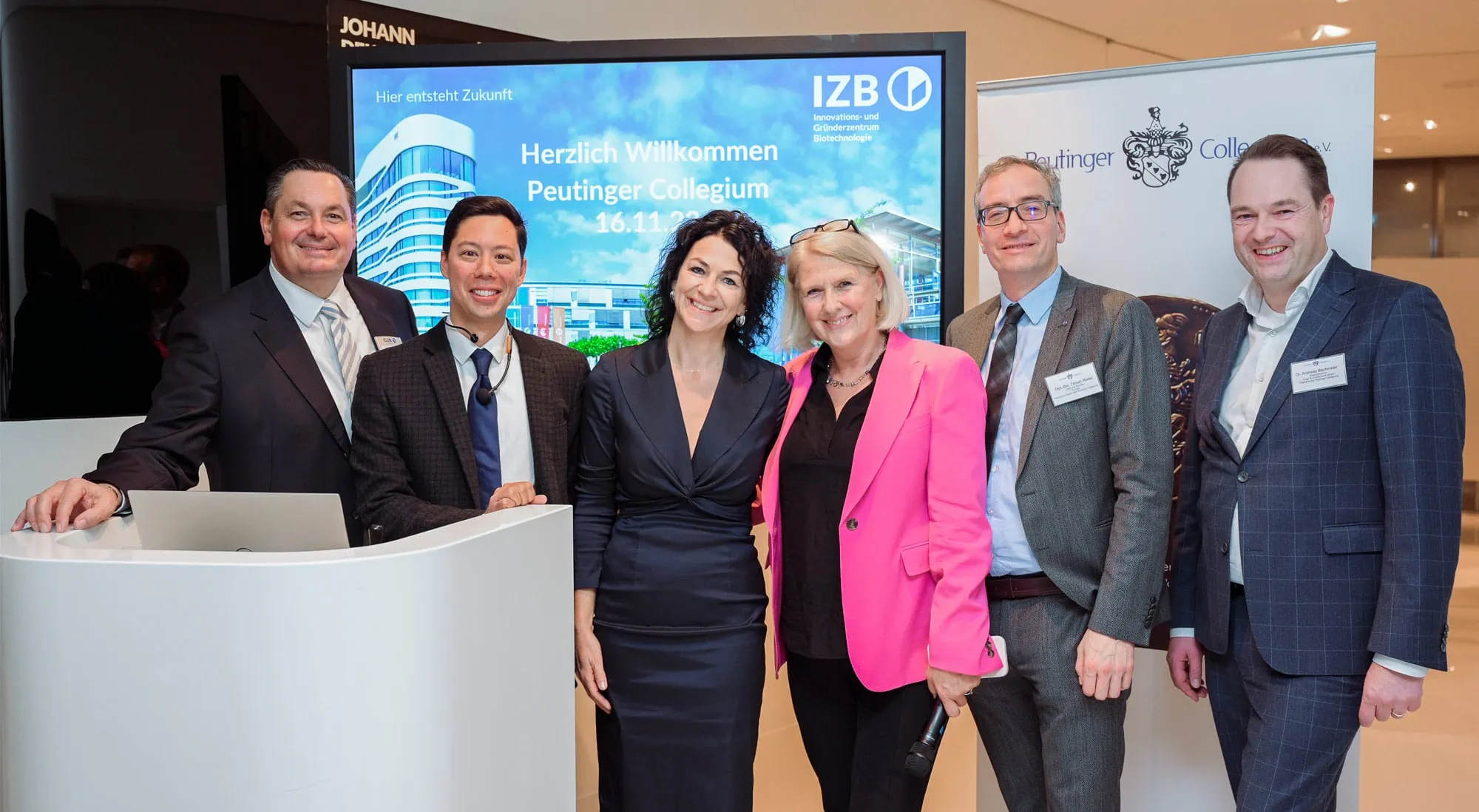
© IZB
Dr. Peter Hanns Zobel, Managing Director IZB; Dr. Patrick Großmann, Managing Director Invitris GmbH; Belinda Fritsche, Head of Office Peutinger Collegium e.V.; Susanne Simon, Head of Public Relations IZB; Tilman Röder, Member of the Presidium of Peutinger-Collegium e.V., Dr. Andreas Bachmeier, President of Peutinger-Collegium e.V.
In mid-November, over 70 Peutinger-Collegium convenors visited the Innovation and Start-Up Center for Biotechnology (IZB) in Martinsried to learn about the dynamic location and gain an insight into current biotechnology topics.
Following the welcome address by Dr Andreas Bachmeier, President of Peutinger-Collegium e.V., and the introduction by Tilman Roeder, member of the Executive Committee of the Peutinger-Collegium e.V., Dr Peter Hanns Zobel, Managing Director of the Innovation and Start-Up Center for Biotechnology (IZB) mbH, presented the successes of the Innovation and Start-Up Center for Biotechnology (IZB). Founded in 1995, the IZB has become a leading biotechnology centre. Currently, 40 biotech companies and five life science companies with more than 700 employees are housed in 26,000 square metres of space. Here, researchers are working on the development of drugs against the most serious diseases, such as cancer, Alzheimer’s and various autoimmune diseases. A key criterion for the success of the IZBs is their proximity to cutting-edge research on the Martinsried/ Großhadern campus and the Weihenstephan campus.

© IZB
Dr. Patrick Grossmann, Managing Director Invitris GmbH, Dr. Peter Hanns Zobel, Managing Director IZB (f.l.t.r)
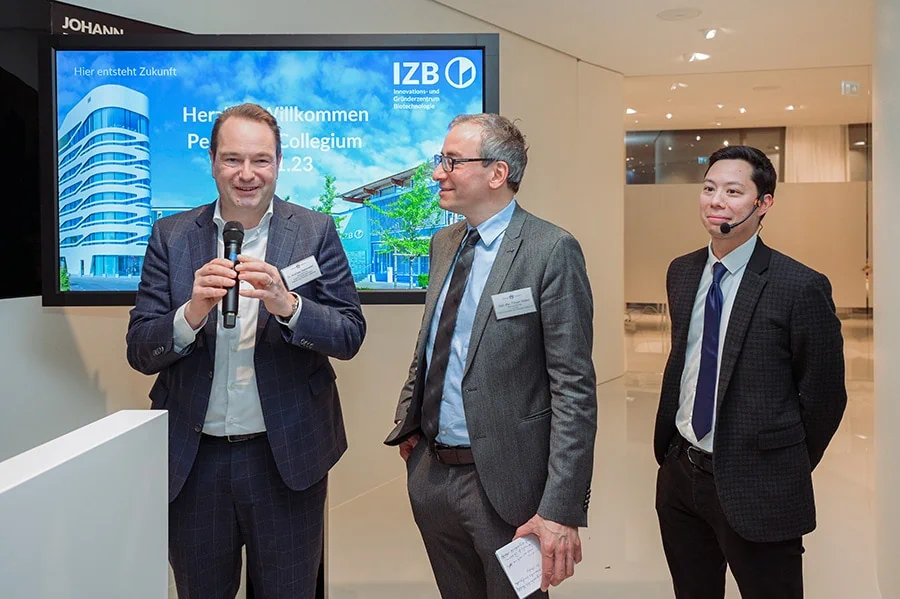
© IZB
Dr. Andreas Bachmeier, President of the Peutinger-Collegium e.V., Tilman Röder, Member of the Presidium of the Peutinger-Collegium e.V., Dr. Patrick Großmann, Managing Director of Invitris GmbH (f.l.t.r.)
In another presentation, Dr. Patrick Grossmann, CEO & co-founder of Invitris GmbH, discussed the topic of “The Great Silent Pandemic: Antibiotic Resistance”. He outlined the problem posed by the increasingly widespread resistance of bacteria to antibiotics. However, there is hope that a class of viruses called phages may be able to kill even highly resistant bacteria. According to Grossmann, his start-up company Invitris has now found a way to synthetically produce these phages in a highly scalable and pure form, allowing the phages to be produced in large quantities and tailored to specific germs.
Founded in 1969, the Peutinger-Collegium is a civic Bavarian non-profit association of qualified, successful, ambitious, versatile, exceptional, influential, nationally and internationally active personalities from the worlds of business, science and art, politics, diplomacy and the military. The Peutinger-Collegium is an interdisciplinary organisation that actively pursues common goals such as a philanthropic, cosmopolitan European friendship of nations and a free, democratic legal and political order that respects the rights of countries and regions and is based on the constitution. The Peuthinger-Collegium follows the guiding principle “Living freedom in social responsibility – committed, non-partisan, cosmopolitan, competent, contemporary” and offers an interdisciplinary discussion platform independent of public funds for the exchange of information, the formation of opinions and the cultivation of social contacts.
More information about the Peutinger-Collegium can be found here: www.peutinger-collegium.de
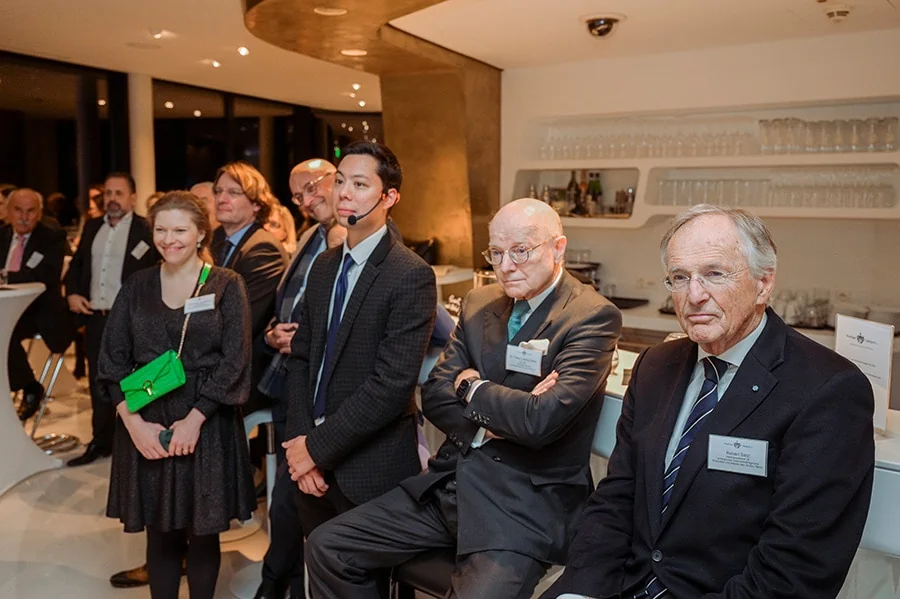
© IZB
Members of the Peutinger Collegium with Dr. Patrick Großmann, Managing Director Invitris GmbH
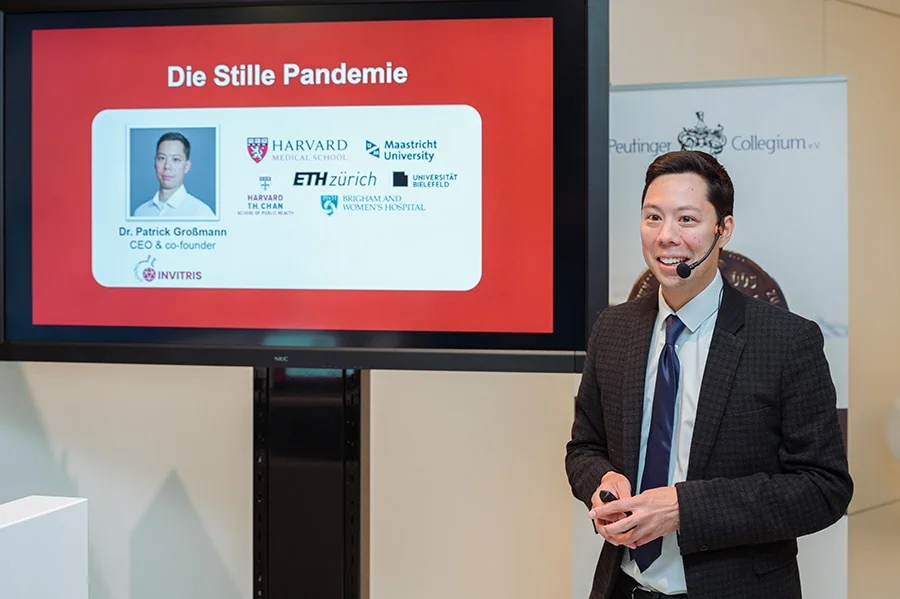
© IZB
Dr. Patrick Großmann, Managing Director Invitris GmbH

© IZB
Farewell Belinda Frische, Head of Office Peutinger Collegium e.V.;
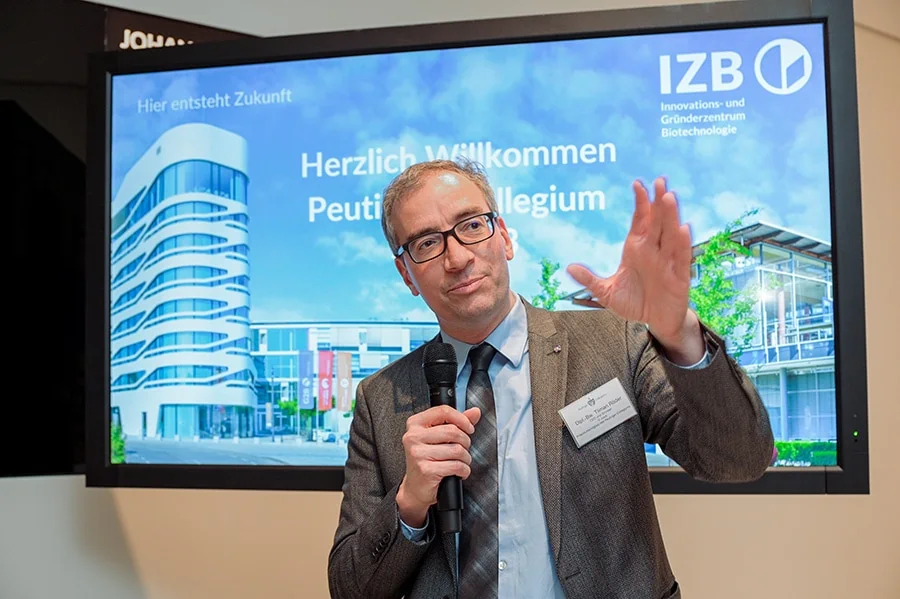
© IZB
Tilman Röder, Member of the Presidium of Peutinger-Collegium e.V.
„Unser Team entwickelt mit großer Leidenschaft hochinnovative Therapeutika für Haustiere, um die Lebensqualität unserer vierbeinigen Gefährten und ihrer jeweiligen Besitzer deutlich zu verbessern. Wir freuen uns, heute mit einem so erfahrenen Partner bei der Entwicklung von therapeutischen Antikörpern für Haustiere zusammenzuarbeiten, um die Innovation in der Tiergesundheit weiter voranzutreiben.“
Dr. Kathrin Ladetzki-Baehs
Gründerin und Geschäftsführerin, adivoG

